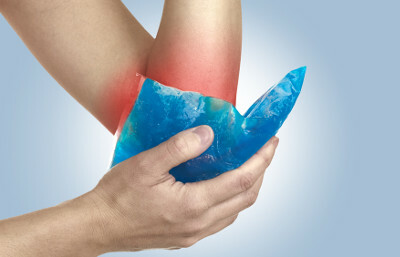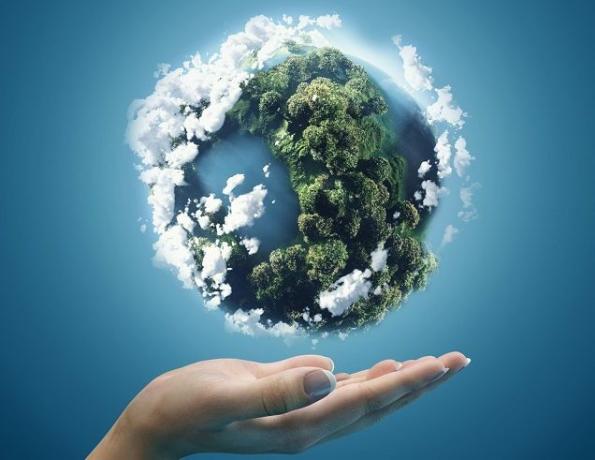When we look up the word “cold” in the dictionary, the first definition we come across is: low temperature. But do you know what the consequences of the cold are? How our body reacts when feeling cold? Does the cold help or harm? To clarify these and other doubts, we spoke with teachers at Brasil Escola Vanessa Sardinha (Biology), Diogo Dias (Chemistry) and Joab Silva (Physics), who pointed out 15 facts about the cold.
1. Putting ice on the wound helps recovery
Ice causes the dilated vessels to constrict and, as a result, decreases blood flow.
2. We feel colder when we have a fever
In cases of fever, the body is usually at a higher temperature than the environment. Thus, the body gives heat to the environment, generating a feeling of cold.

When we have a fever, we feel colder
Salt, as it is a solution that does not evaporate easily, when mixed with ice (H2The solid) lowers the melting point. In this way, there is a decrease in the water temperature, favoring the can's cooling.
4. Reproductive cells are stored in the cold
These cells are stored at a low temperature so that viability is preserved. As a result, they can be used even after months or years.
5. Metals feel cooler than wood
You metals are thermal conductors, and wood is a type of insulator. Therefore, metals perform the heat exchanges more easily, giving the sensation of being colder than other materials.
6. We use the cold water bag to reduce inflammation
Placing the water bag in the part of the body that hurts slows down the inflammatory process because of the contraction of blood vessels.

Placing a cold water bag on inflammation relieves swelling
7. We urinate more in the cold
This is because, when there is a low temperature, we lose less water through sweating. That way, we urinate more.
8. When undergoing tooth surgery, the dentists recommend drinking cold food/drinks
After surgery, we eat cold foods because the cold promotes vasoconstriction of the blood vessels, decreasing the blood flow in the area and, consequently, reducing the pressure in the region. This leads to less pain and swelling.
9. Cold can kill people/animals
Death can occur because of hypothermia, which is when there is prolonged exposure to cold, such as when it snows or when the person is immersed in an icy lake. This problem occurs when the body temperature drops below 35 °C and can be fatal for people who reach temperatures below 27 °C.
Do not stop now... There's more after the advertising ;)

too cold can kill people
10. Some trees lose more leaves in the cold
Trees that lose leaves in a certain period are called deciduous. as in Winter there is less availability of liquid water, the loss of leaves during this period guarantees greater water savings for the plant.
11. When the day dawns cold, the car that was filled with alcohol may take a while to start
Alcohol, to combust, requires a temperature larger than gasoline, so on cold days, spark plugs must work to produce the ideal temperature for ethanol combustion. In addition, the oil becomes denser, chemical reactions in the battery run slower, and so on.
12. Applying alcohol to the skin gives a momentary feeling of cold
When alcohol is on the skin, heat from the area is absorbed, causing vaporization (transition from liquid to gaseous state). As we have the heat output from the area in contact with alcohol, we feel a coolness in the place.
13. Drinking alcoholic beverages on cold days gives a warming sensation to the body
Alcohol is a substance that promotes vasodilation of arteries and arterioles, causing blood to flow more quickly through the body, but it causes a loss of heat internal due to the increase in the diameter of the vessels, heat that promotes the sensation of heating.

Drinking alcoholic drinks warms up on cold days
14. Radiator water does not freeze on cold days
This water does not freeze because it is mixed with a substance (such as ethylene glycol) that is non-volatile (which does not easily vaporize) that considerably lowers the freezing point of water.
15. On cold days we feel more pain
The low pressure that occurs in cold weather causes a decrease in cortisone production and adrenaline, hormones that act to control pain. Another theory explains that the nerve endings are altered with pressure changes, increasing the perception of pain. Low temperature can also be related to the contraction of muscles that are close to nerves and joints, increasing pain.
By Silvia Tancredi
Brazil School Team
Would you like to reference this text in a school or academic work? Look:
TANCREDI, Silvia. "15 trivia about the cold"; Brazil School. Available in: https://brasilescola.uol.com.br/curiosidades/15-curiosidades-sobre-frio.htm. Accessed on June 27, 2021.


